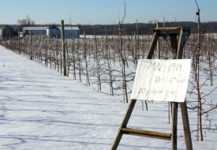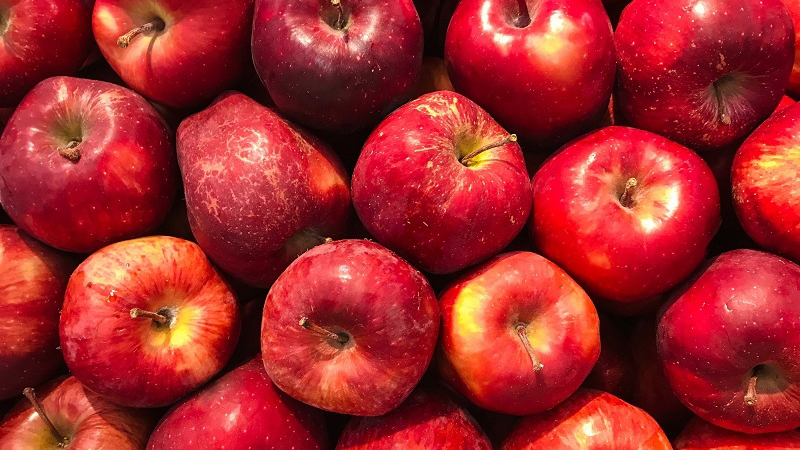IFTA 2010 Conference; Grand Rapids, MI

This was also the first IFTA conference planned under the leadership of The Drake Co., the new management firm for IFTA. Working in tandem with IFTA’s Board of Directors, as well as Michigan State University’s (MSU) Phil Schwallier and others from MSU, The Drake Co. was able to put on an event that went off without a hitch. As you’ll read below, the educational sessions and tours of local agribusinesses featured an in-depth look at innovative production systems, variety and rootstock combinations, and how to manage your crop to produce the highest-quality fruit. Even with attendance levels topping 400 people, and six nearly full buses for the tours, the result was certainly a learning experience.
There were two overall themes that emerged from this year’s IFTA Conference. The first was crop management with the use of plant growth regulators (officially dubbed the Art Mitchell PGR Symposium, in honor of the long-time MSU researcher). This intensive program covered everything from thinning to predicting fruit set to the use of 1-MCP during harvest and in storage. The Robert F. Carlson Memorial Lecture (named after IFTA’s first secretary) was given by John Palmer of HortResearch in New Zealand, who discussed how to capture and manipulate light in a high-density orchard. Want more information on these and other presentations? Your best option is to go to www.ifruittree.org and become a member of IFTA, which will give you access to the organization’s Compact Fruit Tree publication.
The second theme of the conference was developing an ideal high-density production system for your operation. During the orchard tours, several local growers gave their input on the systems they have come up with, and which varieties/rootstocks and training/pruning techniques have worked best for them. So what is the ideal system? As MSU horticulture professor Greg Lang noted on the topic of cherries, “There is no perfect training system. The best system is one that a grower understands and knows what he wants to do with it and why he wants to do it.”
So what’s the purpose of such a close look at orchard designs? Perhaps this was best summed up in a presentation by Penn State University pomologist Jim Schupp, who said that intensive orchards will be necessary when it comes time to fully mechanize and automate your orchard. “The use of platforms, mechanical thinners, and other devices will increase labor efficiency and result in economic savings,” said Schupp, “and tree architecture will be critical to the success of this technology.”
High tunnels have become a hot topic in fruit production, and some attendees were fortunate to be part of a pre-conference tour of sweet cherries grown under high tunnels at the Southwest Michigan Research and Extension Center.
One highlight of every IFTA meeting is the annual banquet. This year, a number of awards were handed out during the banquet.
• Industry Service Award: Phil Brown, owner of Phil Brown Welding, an orchard equipment manufacturer in Conklin.
• Special Service Award: Phil Schwallier of Michigan State University, who wears many hats: MSU educator/researcher, farm market owner, and organizer of the educational portion of this year’s IFTA meeting.
• Outstanding Extension Educator: Allison DeMarree of Cornell University, who advises growers on orchard economic information while living on a fruit farm herself.
• IFTA Hall of Fame Award: This year two individuals were inducted — Evan Milburn of Milburn Orchards in Elkton, MD (American/Western Fruit Grower’s 2008 Apple Grower of the Year along with his son Nathan) and Robert Carlson, IFTA’s first secretary.










